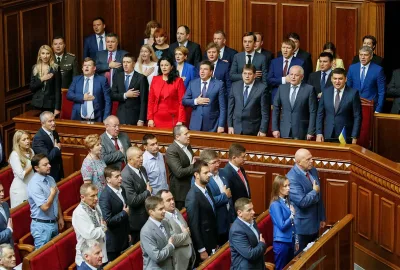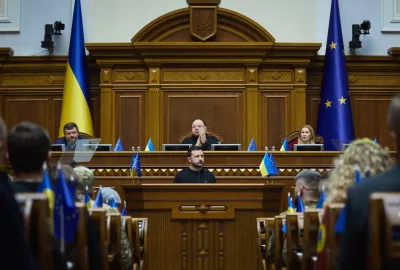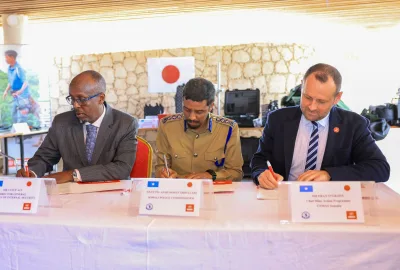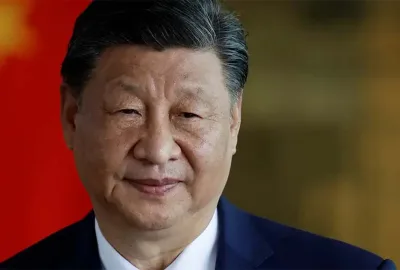The Istanbul Conference on Somalia took place in Istanbul from 21-23 May, 2010 reflecting the strong…
 The Istanbul Conference on Somalia took place in Istanbul from 21-23 May, 2010 reflecting the strong determination of the United Nations, the Government of Turkey and the International Community to work with the Transitional Federal Institutions and the people of Somalia to defeat the cycle of lawlessness, violence and despair in the country and to build in its place a peaceful and prosperous future for the Somali people. The Conference reaffirmed the sovereignty, territorial integrity, political independence and unity of Somalia.
The Istanbul Conference on Somalia took place in Istanbul from 21-23 May, 2010 reflecting the strong determination of the United Nations, the Government of Turkey and the International Community to work with the Transitional Federal Institutions and the people of Somalia to defeat the cycle of lawlessness, violence and despair in the country and to build in its place a peaceful and prosperous future for the Somali people. The Conference reaffirmed the sovereignty, territorial integrity, political independence and unity of Somalia.
The Conference was held within the framework of the Djibouti Agreement, which provides Somalia and its leaders with a clear and viable path for achieving a comprehensive and lasting settlement of the situation in Somalia. Â The Djibouti Process remains open for all Somalis to work towards peace, reconciliation and development. The Conference expressed its full support to President Sheikh Sharif Ahmed and the Transitional Federal Institutions in their efforts to implement the Djibouti Agreement. It reiterated its commitment to improve the lives and security of the Somali people, foster reconciliation, human rights and good governance, increase access to basic services, initiate reconstruction activities and set Somalia firmly on the path to peace and sustainable development.
The Conference noted the existence of several outstanding commitments made in previous forums on Somalia and urged the Transitional Federal Institutions and the International Community to implement them. The Conference placed particular emphasis on the urgency for the Transitional Federal Government to address its considerable political, economic and security challenges. It also encouraged the private sector to play a positive role in strengthening peace and stability.
1.   The Conference Recognized that:
- Somalia’s people and leaders face a determined effort, fuelled by internal and external interference, to hinder social, economic and political progress. Overcoming the current hardships and insecurity will require a determined, long-term effort to promote political cooperation and build strong government institutions, while countering the pervasive influence of those profiting from the conflict, as well as the presence of foreign fighters and other elements of extremism.
- It is important that the Djibouti Peace Process and transition are kept on track. The successful implementation of the Djibouti Agreement demands the rejection of violence and extremism; continued outreach and political reconciliation with those outside the peace process who accept dialogue. The Conference welcomed progress made by the Transitional Federal Government in this regard, as illustrated by its agreement with Ahlu Sunna Wal Jama’a in March 2010, and a security accord related to countering piracy with the Puntland region in April 2010 and on bilateral cooperation in August 2008. The Conference encouraged Puntland to continue maintaining its stability and political cooperation with the TFG. It welcomed the current democratization process in “Somaliland†and urged for peaceful completion of its upcoming elections in a transparent manner.
- Somalia needs to establish loyal and professional security forces with a strong and unified command and control structure and reintegrate those armed groups that have joined the TFG. The re-establishment, training, equipping, payment and retention of Somali security forces is vital for the long-term stability of Somalia. The Conference commended all those Member States and international organizations providing training for the Somalia security forces. It emphasized the importance of coordinated, timely and sustained support from the international community and appealed for the prompt and timely disbursement of funds pledged in support of the Somali security institutions. In addition, the Conference welcomed the increased number of trained Somali recruits, as well as the senior Transitional Federal Government military appointments which will significantly enhance the command and control structure.
- Somalia’s reconstruction and development can only be realised when governmental institutions, the business sector, civil society, women, the Diaspora and the international community work together in an effective and coherent manner. Recovery activities can make a greater contribution to social, economic and cultural development in Somalia, through further investment, continued employment-creation and training. The Conference encourages focus on the six initial priority areas identified by the Transitional Federal Government and the business community: telecommunications; transport infrastructure; livestock exports; fisheries, banking and remittances and; alternative energy. In particular it called for support to fund the completion of Bossaso and Garowe airports.
- It is critical to have a renewed emphasis on Somalia’s economic recovery and development. The Conference committed itself to work towards concrete action plans which would include identifying pilot projects for private-public investment with a view to creating economic zones.
- The Conference welcomed the discussion among the business community, the United Nations and development partners and the Transitional Federal Government on the margins of the Conference regarding the “Principles for an enabling Environment for Responsible Business Activities in Somaliaâ€.  The Conference recognized the need to develop business-friendly conditions that would benefit the entire population. It looks forward to further consideration of a business Compact for Somalia.
- The Transitional Federal Government, in partnership with the international community has a major responsibility to respond to the humanitarian suffering of the Somali people. The Transitional Federal Government must discharge its responsibilities to assure safe access to vulnerable populations, deliver basic services, manage public resources wisely and ensure a just distribution of revenues; introduce anti-corruption measures, develop and support the private sector; and build the capacity of its financial institutions. The international community should continue its support to the Somali people. The Conference accepted that the reconstruction outcome of the Istanbul Conference will complement existing humanitarian assistance activities and will not prejudice efforts to organize a more comprehensive development and reconstruction conference at a later stage.
- The Conference:
- Commended the contribution of the African Union Mission to Somalia (AMISOM) to lasting peace and stability in Somalia and expressed appreciation for the continued commitment of troops and equipment to AMISOM by the Governments of Burundi and Uganda and AMISOM Police Contributing Countries- Burundi, Ghana, Nigeria, Sierra Leone, Uganda and Zambia. It condemned any hostilities towards AMISOM and the Transitional Federal Institutions. The Conference also called on other African countries to provide troops to AMISOM to reach its mandated strength. Â It appreciated financial support to AMISOM by the international community and stressed the need for predictable, reliable and timely provision of resources to the AU by all partners. In this regard, the Conference called for the expeditious disbursement of all pledges made at the Brussels Pledging Conference held on 23 April 2009.
- Took note of the important role of the Intergovernmental Authority on Development (IGAD), and Somalia’s neighbours in promoting peace, security and development in Somalia and the region. It re-affirmed the principles of good neighbourly relations and urged Somalia’s partners to continue to support effort towards this end.
- The conference welcomed the decision of the Summit of the League Arab States held in Sirte in March 2010, to convene a conference on Boosting early recovery activities for Somalia, ın the next few months. It expressed its appreciation for the determination of the Arab League to build on the spirit and results of the İstanbul Conference, and to prepare its conference in full cooperation with the Transitional Federal Government of Somalia, the Republic of Turkey, the African Union, the Intergovernmental Authority on Development (IGAD), United Nations and the Organization of Islamic Conference.
- Expressed its grave concern over the increase in acts of piracy and armed robbery at sea against vessels off the coast of Somalia. Noted with appreciation the assistance being provided by the United Nations and other international organizations and donors, in coordination with the Contact Group on Piracy off the Coast of Somalia (“CGPCSâ€), to enhance the capacity of the judicial and the corrections systems in Somalia, Kenya, Seychelles and other States in the region to prosecute suspected, and imprison convicted, pirates consistent with applicable international human rights law. In this regard, it welcomed the establishment of the International Trust Fund supporting initiatives of the Contact Group on Piracy off the Coast of Somalia to defray the expenses associated with prosecution of suspected pirates and to support other counter-piracy initiatives and welcomed Member States and other potential donors to contribute to the fund. Also commended the efforts of other States to prosecute suspected pirates in their national courts and appealed to other States to facilitate the prosecution of suspected pirates in their national courts, consistent with applicable international law, including human rights law. It also expressed appreciation for the role of the EU operation Atalanta, North Atlantic Treaty Organization operations Allied Protector and Ocean Shield and Combined Maritime Forces’ Combined Task Force 151, in the fight against piracy off the Coast of Somalia.
3.        The Transitional Federal Government reaffirmed:
- Its primary responsibility to provide security to the people of Somalia by increasing the number of trained Somali recruits, ensuring integration of all security forces , including those of the Ahlu Sunna Wal Jama’a and improving the control and command structure of the Somali Forces.
- Its commitment to continue its outreach, dialogue and reconciliation efforts, implementing concrete collaboration with Ahlu Sunna Wal Jama’a and extending partnerships with regional and local administrations.
- Its commitment to avoid internal disputes so that they will not hinder the work of the Transitional Federal Institutions and delivery of services to its people. This also entails working to strengthen its governance structures, ensure transparency and accountability and efficient functioning of the Transitional Federal Institutions.
- Its efforts to seek innovative ways to engage with the Somali people to draft the Somali Federal Constitution. The TFG confirmed that a fully inclusive and consultative process would be advanced by the third quarter of 2010. It is also crucial for the TFG to take ownership of the tasks necessary to facilitate the full implementation of the transitional arrangement;
The Istanbul Conference has reaffirmed the world’s commitment to Somalia and its rejection of all efforts to sow violence and instability in the country. We send a clear and strong message to the people of Somalia that they are not alone in the search for peace, reconciliation and prosperity after so many years of poverty, hardship and suffering. With determined efforts by, the Transitional Federal Institutions, Somali civil society and the private sector, in partnership with the international community, a bright future for Somalia is possible.
The Conference took note that the Government of Spain will host the next high-level International Contact Group Meeting in Madrid in September 2010.
The Conference expressed its deep appreciation to the Government and people of Turkey for hosting the Istanbul Conference which is a significant contribution to the efforts towards achieving peace, security and development in Somalia.







